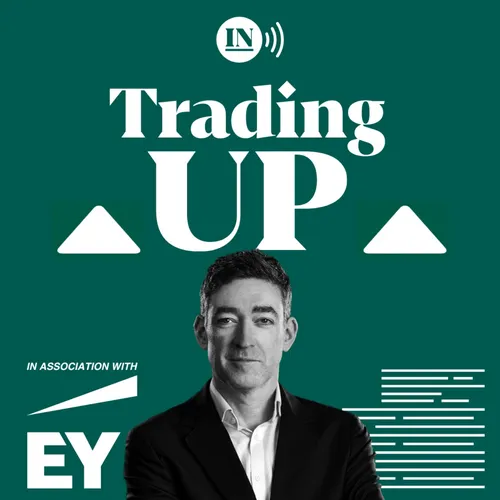Founders: How Declan Keeney Built The Most Advanced Virtual Effects Studio In the World
- Author
- The Irish News
- Published
- Wed 25 Jun 2025
- Episode Link
- https://shows.acast.com/trading-up/episodes/founders-how-declan-keeney-built-the-most-advanced-virtual-e
Declan Keeney grew up with broadcasting in his blood. His Dad was the driving force behind a revolution in local radio in Ireland. Recognising a demand from rural communities whose stories needed to be told and shared, he lobbied the Irish government to change the broadcasting law and founded Highland Radio in Donegal. It became hugely successful and was the catalyst for a new ecosystem of local radio broadcasting in Ireland that changed the national conversation. Declan is now implementing his own revolution and building a new ecosystem at the cutting edge of the creative industries. Studio Ulster, of which he is co-founder, is a £72 million investment in virtual production located in Belfast Harbour. This technology allows film and television producers to create virtual sets that blend with the real so that fully visualised environments can be captured on camera in real-time without the need for laborious post-production. Goodbye green screens. Hello giant "tv" screens. The new facility also has the very latest in motion capture technology on a scale that's not found elsewhere. There's nowhere else like it, in the world. But what Declan's building is more than a studio: with a network of talent and support across government, academia and industry, he's developing that new creative industries ecosystem. As a Professor at Ulster University he has been instrumental in developing the courses and training for the talent to enter the industry. Studio Ulster is also a key research centre - a CoStar Screen Lab, one of five government-backed centres across the UK, each with a different specialism. And the studio is also hosting and incubating a new generation of companies to work with the global film and television industry. The economic payback for the regional economy could be immense. One of the first productions on site was a docudrama about the Titanic. The production was initially slated for a studio in South Africa with a huge water-based set. But Studio Ulster's virtual environment provided a solution that was closer to home. Rebuilding the Titanic wasn't tempting fate, but instead felt like an appropriate first project - keeping millions in local economy - and the order book for the months ahead at Studio Ulster looks pretty full.
Hosted on Acast. See acast.com/privacy for more information.
